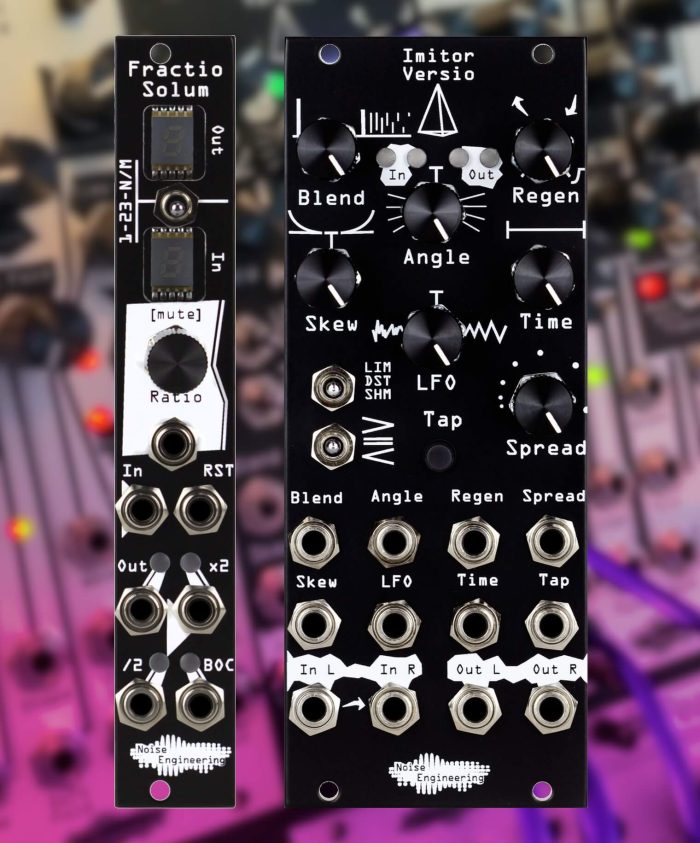Noise Engineering has announced the release of Fractio Solum, a simple and easy-to-use clock divider/multiplier.
Patch a clock in, dial in a fraction, and you’re off! CV over ratio opens up an extra level of clocking and sequencing power.
FS is loaded with features, including a reset input to keep you on the 1, x2 and /2 outs that further divide and multiply the selected ratio for even more variation, a mute feature for breaks and drops, and a BOC output that sends a trigger each time the division starts a cycle.
Flip the mode switch to use FS as a divider/multiplier, to use the more common rhythms based on 2 and 3, or go wild with any division between 1/10 and 10/1.
The module costs $149 USD.
Also available is Imitor Versio, a 12-tap delay designed for experimentation, perfect for creating unusual echoes, experimenting with different delay shapes and patterns, adding vintage flare to an atmosphere, and more.
Imitor Versio is a delay designed for experimentation. With 12 (yes, twelve!) delay taps and a load of parameters designed to make the delay perform in unfathomable ways, IV is perfect for creating unusual echoes, experimenting with different delay shapes and patterns, adding vintage flare to an atmosphere, and other oddities.
Add crescendos and decrescendos with the flip of a switch, skew timings to accelerate or decelerate, and tap the base time of the taps with the Tap button or sync to an external clock. IV is unlike any delay we’ve played with.
Imitor Versio is available for purchase for $345 USD.
Users can also update the Desmodus Versio, which launched in August, to the Imitor firmware for free. IV replacement panels are $20 USD.
Customers who wish to download alternate firmwares can make an account at the new NE Customer Portal and also immediately download the Ampla Versio firmware, an ADSR-controlled VCA and resonant multimode-filter gate, with a stereo bypassable chorus and dynamic curve control.
Noise Engineering has also added support for the Versio platform for users to write their own firmware through the open-source project libDaisy.
More information: Noise Engineering



